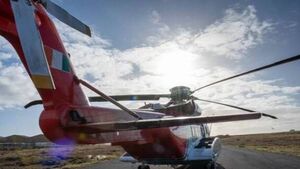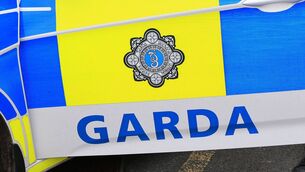IAA responds to criticism over Coast Guard helicopter crew safety concerns

The Irish Aviation Authority (IAA) has responded to criticism aimed at it over concerns around the safety of Coast Guard helicopter crews.
The Irish Aviation Authority (IAA) has responded to criticism aimed at it over concerns around the safety of Coast Guard helicopter crews.
Sinn Fein's, Deputy Conor McGuinness raised the matter this week and claimed that Government negligence is putting Coast Guard air crew safety at risk.
The Waterford TD also said the Government and the Irish Aviation Authority (IAA) "have serious questions to answer" following reports he received that Coast Guard helicopter crews are being subjected to unsafe working-hour arrangements.
Deputy McGuiness said the revelations highlighted “a shocking failure of oversight and leadership from Government and the regulator". He also confirmed that he had invited the Irish Coast Guard to appear before the Oireachtas Committee this month to discuss safety at sea, and concers around working time, fatigue, and regulatory oversight.
In response to his concerns and criticism of the organisation a spokesperson for the IAA commented on the issue to Waterford News & Star and waterford-news.ie.
In a statement the spokespeson said: "The requirements for Flight Time Limitation schemes and rest requirements for crew members (helicopters) in Ireland is detailed in IAA Aeronautical Notice O.58. This direction sets out the Irish National Flight Time Limitation (FTL) requirements for Commercial Air Transport and declared operators of helicopters that have their principal place of business in Ireland."
"Note that the main objective of these aviation safety rules is to minimise the safety risks arising from crew member fatigue," noted the spokesperson.
The spokesperson then outlined a synopsis of what was described as a complex set of rules.
"Article 26 of O.58 provides that when a crew member is on standby, has been provided with suitable facilities and afforded the opportunity to achieve a period of 8 hours un-interrupted sleep in any 24hr period, the operator will count 25% of standby time for the purpose of calculating cumulative duty in relation to maximum duties hours allowed in a seven consecutive day period, in a 28 consecutive day period and in a calendar year," said the spokesperson.
"The IAA is aware that the new operator, Bristow Ireland Ltd. (BIL), does not allow crew members to be on standby from their home, which was allowed by CHC Ireland (CHCI) and which many crew members utilised," he added, before going on to comment: "Instead, BIL crews are provided with suitable accommodation at or very near their base airport, which is also the case for some CHCI operations."
It's also understood that both operators have implemented a Fatigue Risk Management System (FRMS).
An FRMS is a data-driven, scientifically-based approach to managing fatigue-related safety risks in operations, particularly in aviation. It combines schedule assessment, data collection and continuous analysis to proactively and reactively mitigate fatigue.
"FRMS ensures personnel maintain adequate alertness levels through ongoing risk assessment and monitoring of fatigue-related hazards," said the IAA spokesperson.
"These Fatigue Risk Management Systems are in accordance with international best practice for aviation safety as set out by the International Civil Aviation Organisation," he added.
Further emphasising the complexity of the topic, the spokesperson said the IAA plans to issue an additional Aeronautical Notice specifically focused on the subset of helicopter operators who are providing services to the Irish Coastguard.
"It will mirror the requirements in O.58 but remove requirements that are not specifically applicable to Coastguard aviation operations (e.g. single pilot operations)," said the spokesperson.
"This will help all stakeholders better understand the current regulatory obligations and provide greater clarity specifically in relation to Coastguard - SAR operations," he added
The spokesperson concluded the statement by emphasising that safety is or paramount importance: "In conclusion, aviation safety is our priority, and this is achieved through a thorough framework of identification, assessment and mitigation of safety risk, as well as ongoing audit and oversight assurance."
Read more about this story and Deputy Conor McGuinness' criticism here






